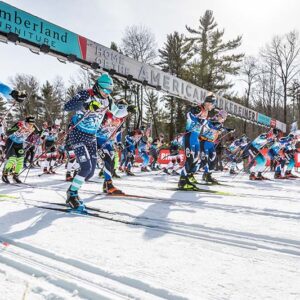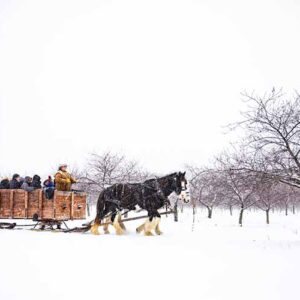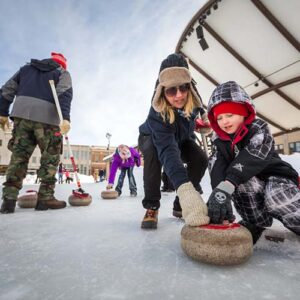WICCI’s Tourism and Outdoor Recreation Working Group is focused on understanding how climate change will impact tourism and outdoor recreation activities across the state of Wisconsin and developing resources and initiatives that support the sector’s mitigation and adaptation activities. Our group brings together academic, government, industry, and tribal representatives with diverse subject matter insights and expertise.
Summary of Issues and Impacts
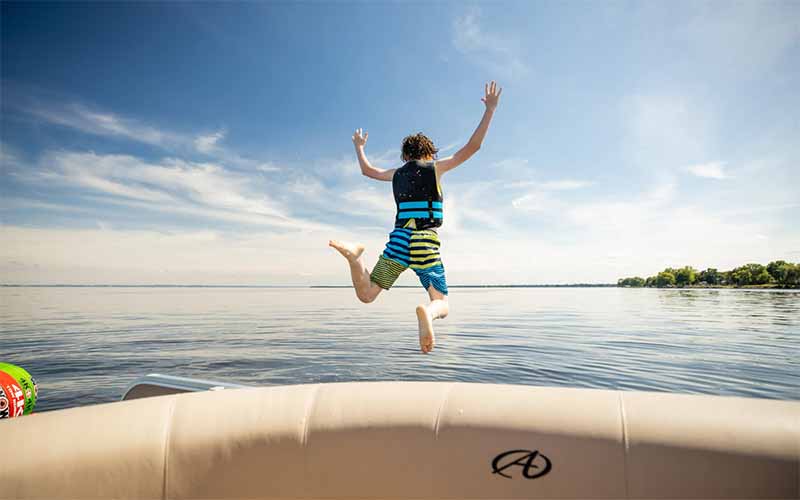
Tourism is one of the largest economic drivers in Wisconsin. From the Driftless area in the southwest to the Northwoods in the northeast, the Central Sands region, and the Lake Michigan and Lake Superior coastlines, tourism and outdoor recreation opportunities can be found in every county in the state.
Wisconsin is also home to Native American Tourism of Wisconsin, an umbrella organization that helps promote and share unique tourism opportunities from the state’s 11 federally recognized tribes, each of which offer unique experiences.
Shifting Seasons
The implications of rising temperatures for tourism and outdoor recreation in Wisconsin are broad, in some cases creating additional opportunities and in others decreasing them.
Extreme Heat
While the summer season will lengthen due to increasing temperatures, the increasing frequency of extreme heat days could cause the recreation season to become doughnut-shaped, with active swimming and boating pursued in the spring and fall but avoided during the peak of summer when temperatures are too high or dangerous to human health.
Warming Water Temperatures
Warming temperatures will lead to warming temperatures in Wisconsin’s waterways, which will include impacts to lake ice cover, water availability, and water quality.
Extreme Storms
Increases in the frequency and intensity of heavy rain events will create hazards for outdoor recreation enthusiasts, while the resulting effects of floods and washouts will create impediments to tourism.
Rain Versus Snow
While winter months are expected to get wetter, warming temperatures mean that precipitation is more likely to fall as rain than snow, reducing the reliability and duration of snowpack throughout the state.
Lake Levels
Wisconsin’s inland and Great Lakes are experiencing changes in their water levels due to changes in the evaporative power of the atmosphere (resulting from warming) and the seasonal distribution of precipitation. While Wisconsin’s lake levels are not expected to get higher or lower overall, they are becoming more volatile, meaning that they swing more rapidly between high and low extremes. These fast changes in lake levels present challenges to managers of lakeshore amenities, such as beaches and marinas.
The Tourism and Outdoor Recreation Working Group completed the following report to help broad audiences understand the many interactions between climate change and tourism and outdoor recreation in the state, and how we can move forward in a way that helps ensure the long-term sustainability and growth of these industries.
View the Tourism and Outdoor Recreation Working Group report (pdf)
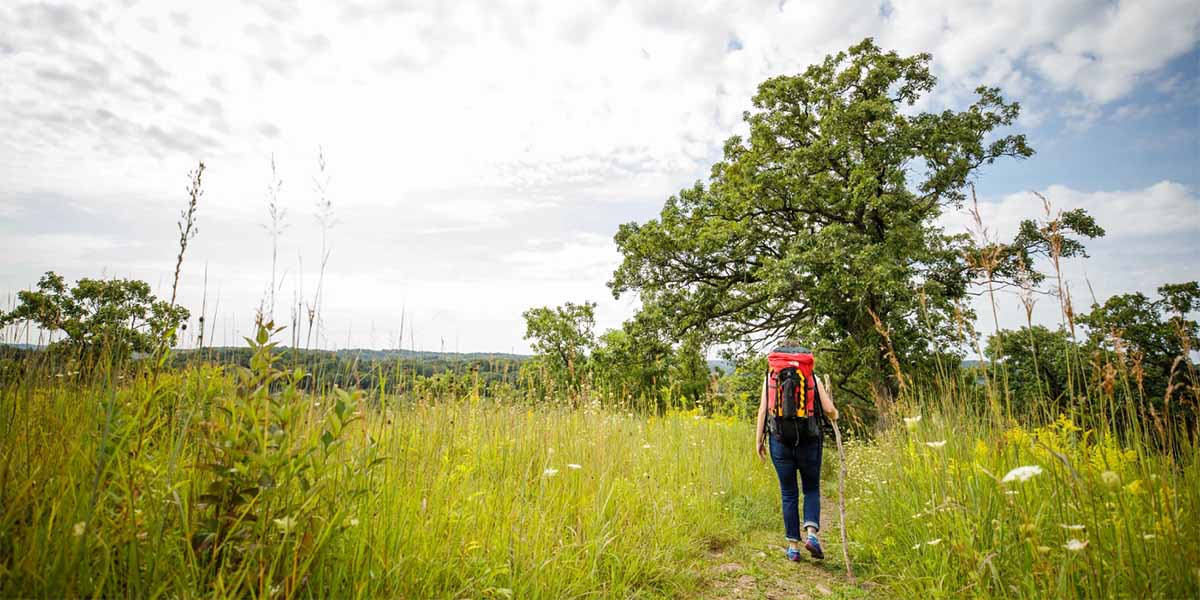
Recommended Solutions/Strategies
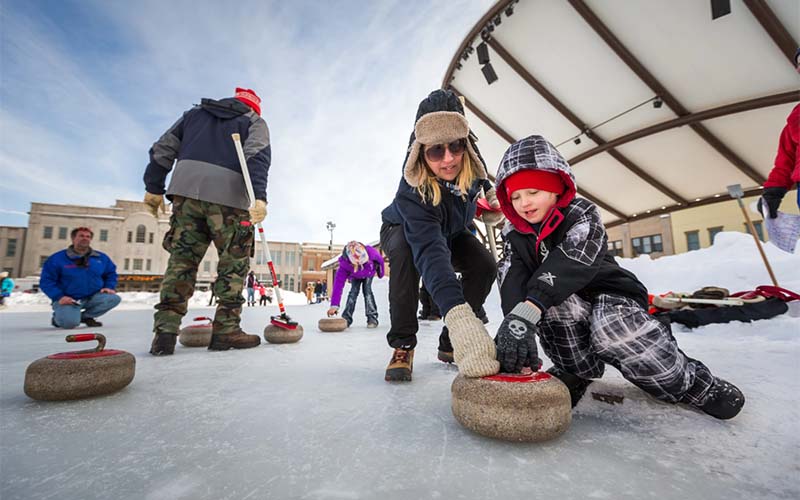
The Tourism and Outdoor Recreation Working Group recommends the following approaches:
- Early communication. Determine how to get information to tourism and outdoor recreation sector early and often.
- Determine needs. Work directly with tourism and outdoor recreation sector professionals to understand and meet needs.
- Increase capacity. Increase capacity for Department of Tourism.
- Support partnerships. Figure out ways to enhance and increase statewide partnerships.
- Leverage current resources. Add to existing tourism programs, such as Travel Green Wisconsin, with climate change adaptations addressed by the community in their event plans.
This is an accordion element with a series of buttons that open and close related content panels.
Shifting Climate and Weather
Impacts
- New opportunities for activities and events
- Winter activities declining in southern Wisconsin
- Impacts to species habitat (e.g., grouse, trout) and seasons (e.g., sugarbush)
- Species coming into and leaving Wisconsin (e.g., potential for new species for bird-watching in southern Wisconsin)
- Shifting species ranges (loss of particular species in an area that have traditionally been harvested for crafts, e.g. birch)
- Uptick in pests and infectious diseases (e.g., ticks)
Strategies/Solutions
- Adjust timing of marketing
- Empower businesses to diversify their offerings
- Support habitat refugia protections for areas anticipated to sustain a particular species
- Develop habitat management plans that will allow species to adapt, e.g., evaluate Aspen plantings to promote ruffed grouse habitat
- Adjust stream management to changing climate patterns
More Frequent, Intense Heat Waves
Impacts
- Cancellation of outdoors events (e.g., races, marathons, pow-wows)
- Shift to indoor recreation opportunities
- Increased expense to businesses from demand for air-conditioning
- Increased demand for beaches and waterfront activities
- Warmer waters, leading to changes in species availability
- Increase frequency and severity of harmful algal blooms
- Other human health harms
Strategies/Solutions
- Provide training for tourism and outdoor recreation professionals around heat safety; require event organizers to be prepared with this type of training
- Run visioning exercises with stakeholder groups that consider alternatives and backups for canceled events
- Figure out strategies for preventing permanent losses of tourists and visitors from “one bad experience,” strategies to encourage return visitors
- Provide resources to businesses to build emergency preparedness, readiness
- Increase outreach and education on how to access beach safety information
- Monitor technological advancements in the field of outdoor recreation, e.g. algal removal techniques, ways to withstand the heat while outdoors; encourage private industry to respond to these needs and adopt best practices
Wetter Winters and Springs
Impacts
- Delays in tourism-related activities due to wet conditions
- Potential cancellation or changes in timing of events due to rain/snow
- Reductions in availability of recreational fields (e.g., soccer, lacrosse, ball fields)
- Reduced access to public access points has wide-ranging impacts to outdoor recreation
- Trail maintenance challenges
- Destruction of cultural artifacts and destinations
- Impacts to wild rice (water levels and quality are key)
Solutions/Strategies
- Require planning and grant funding applications to consider lake level fluctuations, flood resilience (where applicable)
- Provide guidance and training around how to make decisions not to rebuild, i.e., “retreat”
- Consider rescoping locations of trails and access points
- Provide additional funding and/or build new partnerships to support more frequent trail maintenance, erosion control and prevention measures
- Work with tribal historic preservation officers around the state to develop innovative solutions to protect and preserve cultural resources
- Support partnerships to reassess wild rice planting locations
Reductions in Snow Cover
Impacts
- Cancellations to winter cross-country skiing, snowmobiling events
- Cancellations of winter cultural events (traditional storytelling and winter games require snow cover)
- Loss of winter snow-based recreation in southern Wisconsin
- Impacts to snow-dependent hunted/trapped species (e.g., grouse, snowshoe hare)
Strategies/Solutions
- Provide support to businesses and communities to adapt to changing conditions, plan for cancellations
- Empower businesses to diversify their offerings
- Prepare for, monitor potential reductions in snowmaking effectiveness
- Provide support to habitat cover/improvement projects for vulnerable species
Less Extreme Cold
Impacts
- Impacts to ice cover, subsequent impacts to water levels in rivers and lakes, ice fishing, racing, sailing
- Uptick/persistence in pests and infectious diseases (e.g. ticks) will lead to human safety concerns and declines in harvestable species
Strategies/Solutions
- Support formal scoping study of challenges and opportunities for winter outdoor events
- Prepare forward-thinking guidance to protect tourists and outdoor recreators
Increased Frequency and Severity of Extreme Storms
Impacts
- Coastal impacts and wave energy will lead to loss of beaches, damage to marinas, and other coastal property and infrastructure
- Increased safety concerns for fishing, hunting, camping, event participants
- Infrastructure damage, loss of access to outdoor recreation resources
Strategies/Solutions
- Consider tourism and outdoor recreation facilities and climate change in community hazard mitigation planning
- Consider how to support industries that might experience extended closures and losses due to extreme storm events
- Create partnerships between communities to help mitigate costs of event cancellations, i.e., communities can partner to plan and host events that may be impacted by extreme weather
- Consider how damage to infrastructure and access points might affect Americans with Disabilities Act (ADA) compliance and availability of resources for underserved and vulnerable populations
- Utilize sustainable trail design practices in planning, construction, and maintenance to increase resilience to extreme events
Environmental and Climate Justice Issues
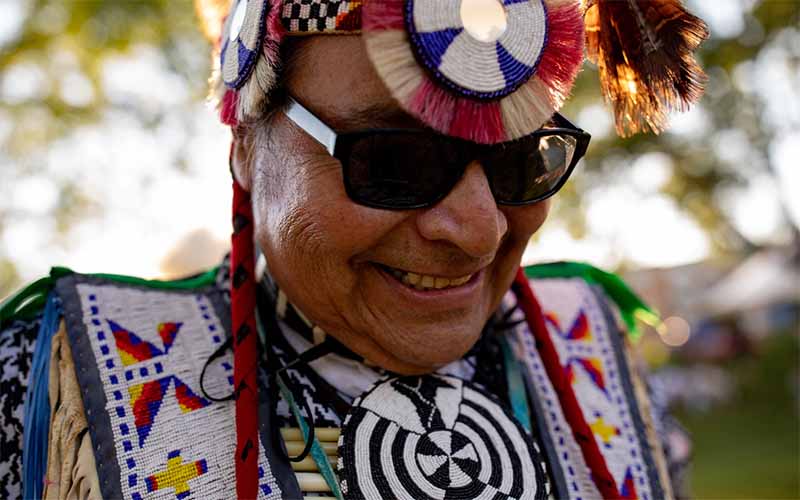
Tourism and outdoor recreation are important to Wisconsin; however, the ability to access tourism and outdoor recreation activities can vary. Furthermore, the impacts of climate change will affect certain groups disproportionately when it comes to taking advantage of tourism and outdoor recreation opportunities in the state. The Tourism and Outdoor Recreation Working Group has identified several ways in which their sector intersects with these climate and environmental justice concerns in Wisconsin, including:
- The tourism and outdoor recreation industries are made up of many small- to medium-sized businesses that will be disproportionately impacted by climate change. As seen with the COVID-19 pandemic, these businesses are susceptible to external shocks and often have limited capacity for advance planning, preparedness, and adaptation.
- Tourism and outdoor recreation are important economic sectors for many rural and environmentally vulnerable coastal communities in Wisconsin.
- Tourism contributes to climate change and, as such, solutions need to be considered in an environmental and climate justice framework.
- Outdoor recreation benefits human health; thus, equitable access to outdoor spaces and resources should exist for all.
Our Team
Members
- Natalie Chin (co-chair), Wisconsin Sea Grant, nchin5@aqua.wisc.edu
- Dreux Watermolen (co-chair), Wisconsin Department of Natural Resources, Dreux.Watermolen@wisconsin.gov
- Shelly Allness, Wisconsin Department of Natural Resources
- Todd Breiby, Wisconsin Coastal Management Program
- Mike Friis, Wisconsin Coastal Management Program
- Austin Holland, University of Wisconsin–Stevens Point
- Cassie Mordini, Office of Outdoor Recreation, Wisconsin Department of Tourism
- Phil Rynish, Wisconsin Department of Natural Resources
- Meghan Salmon-Tumas, Northland College

